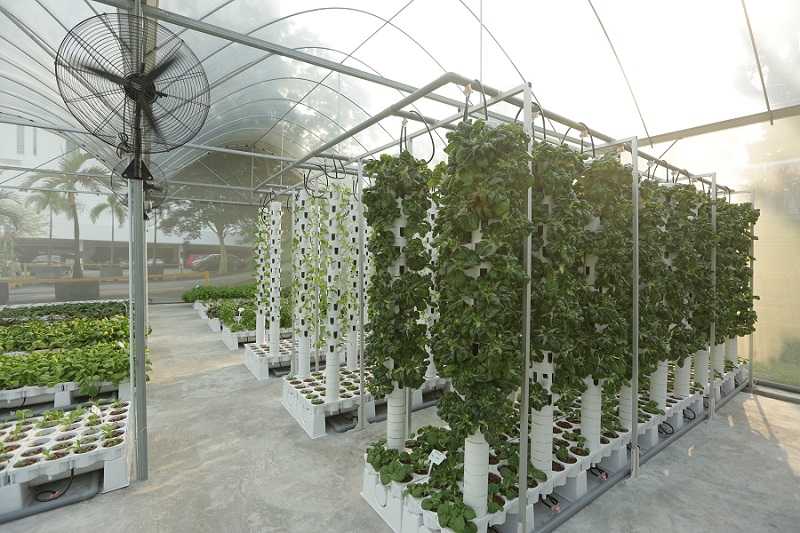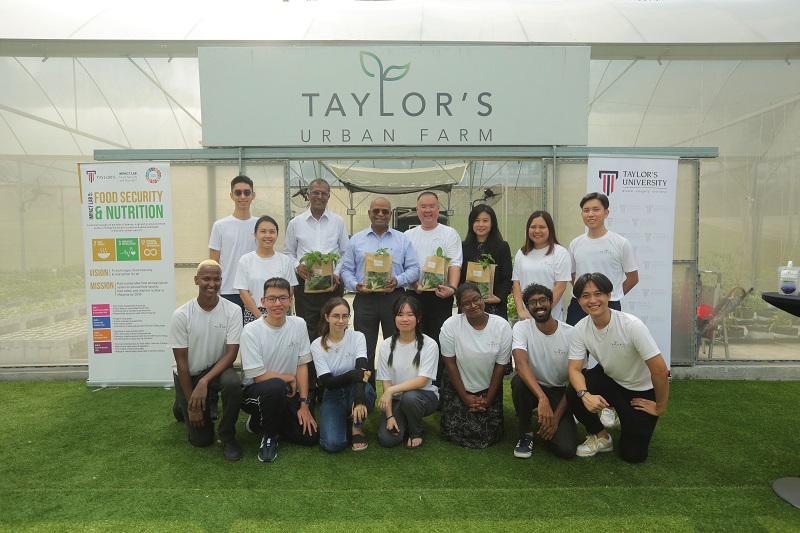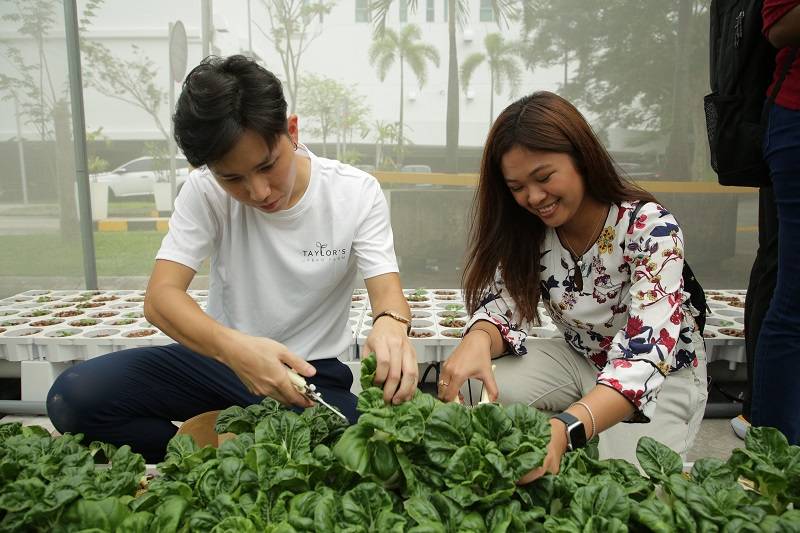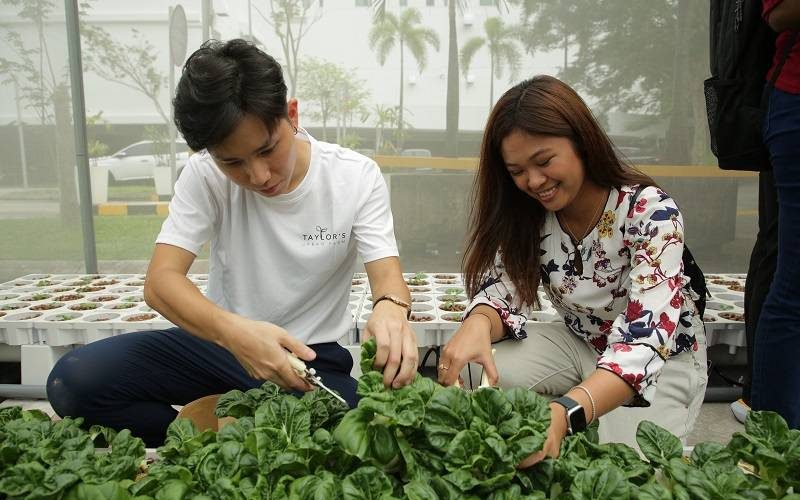Taylor’s University, a renowned institution committed to purpose-led education, has inaugurated the Taylor’s Urban Farm (TUF) on its Lakeside Campus. As a crucial component of the Food Security and Nutrition Impact Lab, TUF aims to inspire and encourage the community to take an active role in revolutionizing the food system through innovative practices and technology.
TUF encompasses a sprawling one-acre “field of inquiry,” providing students and staff with an interactive space to address the pressing need for food system transformation. The urban farm boasts a diverse range of more than 20 vegetables, fruits, and herbs, cultivated through three distinct planting systems: vertical towers, grow beds, and autopots.
One of TUF’s remarkable features is its implementation of a closed-loop system that minimizes external inputs and enhances the nutrient cycle by recycling water used for plant growth. This approach ensures sustainability and minimizes contamination risks, differentiating TUF from traditional farming methods. Annually, the urban farm has the potential to yield over 4000 kg of fresh, organic, and pesticide-free produce.

Revolutionizing agriculture with technology
A key highlight of TUF is its semi-automated approach, facilitated by the Internet of Things (IoT) Nido One system. This precise system controls and monitors vital factors in the hydroponic growing process, including water pH levels, nutrient solutions, temperature, and humidity. This technology-driven approach not only enhances efficiency but also showcases Taylor’s commitment to cutting-edge innovations in sustainable agriculture.
Professor Dr. Pradeep Nair, Deputy Vice-Chancellor and Chief Academic Officer at Taylor’s University, emphasized the institution’s role in cultivating change within the food system: “The technology and innovations available, coupled with our commitment to purpose-led learning and multidisciplinary collaboration, position us to become a key player in shaping debates and activism that drive food system transformation.”
Associate Professor Dr. Phelim Yong, Head of the School of Biosciences, envisions TUF as a living lab that enriches students’ food literacy and supports academic and agricultural research. Particularly, the hydroponic cultivation of crops will be a focus, benefiting both undergraduate and postgraduate studies.

Empowering future culinary leaders
Taylor’s University introduces a pioneering Minor in Sustainable Urban Farming, the first of its kind among private universities in Malaysia. This program will equip students with practical knowledge in sustainable urban farming practices, fostering environmental preservation, public health, and support for local communities. Students will delve into modules covering crop development, hydroponic systems, sustainable agriculture, and data management.
With a commitment to sustainable practices, 80 percent of TUF’s produce will supply Taylor’s Culinary Institute and the School of Food Studies and Gastronomy. This initiative enables culinary students to engage in socially conscious practices, learn about ingredient sourcing, and create farm-to-fork dining experiences that prioritize nutrition and sustainability.

Addressing food security challenges
According to the 2022 Global Food Security Index by Economist Impact, Malaysia ranks 41st globally in food security and second in Southeast Asia. The nation’s heavy reliance on food imports highlights the urgency of enhancing self-sufficiency and sustainable food production. TUF is a proactive step toward mitigating this issue, aligning with the Food Security and Nutrition Impact Lab’s mission to combat hunger and malnutrition.
Taylor’s University’s establishment of 13 Impact Labs underscores its dedication to the United Nations Sustainable Development Goals (SDGs) and shared community prosperity. Through collaborations between academics, students, and external partners, these Impact Labs pave the way for innovative solutions that address pressing challenges in society.











